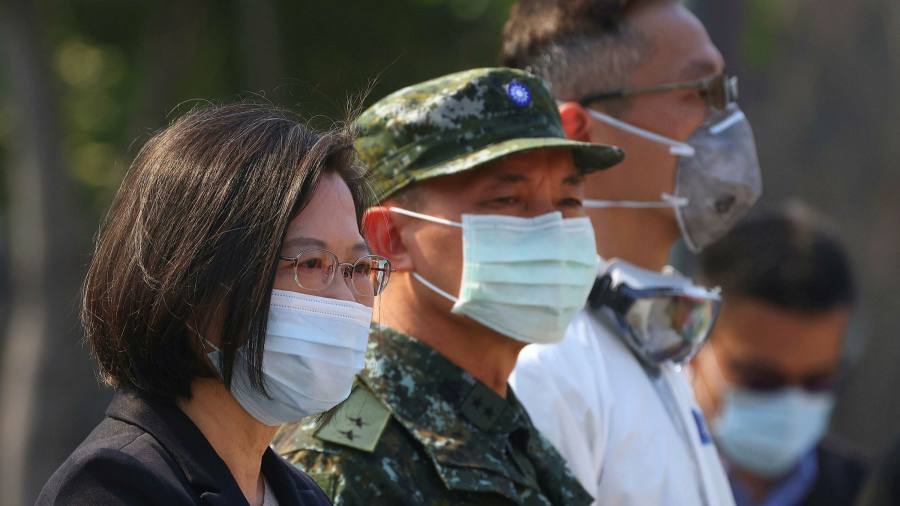[ad_1]
Taiwan’s president Tsai Ing-wen on Tuesday ordered her national security team to keep close tabs on relations with the US, as Taipei watches for signs that Washington could retreat from some of the Trump administration’s advances in bilateral relations.Â
“I have told the national security team to keep in close contact with the new US government, Congress, the ruling and opposition parties and broader society to maintain the best possible communications,†Tsai said following a meeting of her National Security Council that covered initial assessments of the Biden administration.Â
A senior national security official said that muscular statements from Washington regarding its China policy had reassured Tsai’s government that the US was unlikely to downgrade links in order to please China. However, some subtle changes in language have raised doubts.
“There are some confused signals from Washington,†said another senior Taiwanese government official. He pointed to recent statements that avoided calling Tsai president, as had become the norm under Donald Trump.
State department spokesman Ned Price urged Beijing to cease its pressure against Taiwan and instead engage in dialogue after China stepped up military incursions into Taiwan’s air defence zone last month and simulated an attack on a US aircraft carrier.
But Price referred to “Taiwan’s democratically elected representatives†instead of its president or government. The phrasing was an apparent return to longstanding internal rules in Washington on the use of language or moves by US officials that could suggest recognition of Taiwan as an independent state.
Mike Pompeo, secretary of state under Trump, had announced that the US would lift all restrictions that had been in place for interactions between American and Taiwanese officials. He told other US government agencies to ignore previous “contact guidelines†issued by the state department because they had been implemented in “an attempt to appease the Communist regime in Beijingâ€.
The Biden administration has not made clear how it will proceed. But in a reference to Pompeo’s move, Antony Blinken, secretary of state, said in his confirmation hearing that he wanted “to see that process through to conclusion if it hasn’t been concludedâ€.Â
The state department did not say if it would maintain Trump’s position, but the Biden team has shown signs that it will take a more assertive stance towards China over Taiwan compared to the Obama administration.Â
Alexander Huang, a former senior foreign affairs policy official in Taiwan, said it was too early to assume that the Biden administration had a comprehensive China policy.Â
“What they are doing now is trying to stabilise the relationship with China by signalling ‘We are back to normal diplomatic process’,†he said. “While that does not tell you much about their eventual China policy, it does mean that our people here should remain vigilant.â€
Bonnie Glaser, a Taiwan expert at the Center for Strategic and International Studies, a think-tank, said the new administration had been extremely supportive of Taiwan.
“What we have seen on Taiwan has been [primarily] reactive to events, but those reactions have shown staunch support for Taiwan,†she said.
Glaser pointed out that when the state department criticised China over the aerial exercises, it said the US would “continue to support a peaceful resolution of cross-strait issues, consistent with the wishes and best interests of the people on Taiwanâ€. This phrasing returned to a formulation used during the Clinton administration that was later replaced by language that referred to the people on both sides of the Taiwan Strait.
“My guess is that they won’t go back to what was originally in place [during the Obama administration] and won’t embrace the Trump administration approach with the complete elimination of the guidelines,†Glaser said. “They will come up with something that is consistent with US interest at this time. What the Trump administration did created some space for the Biden administration to revisit this issue.â€
[ad_2]
Source link






